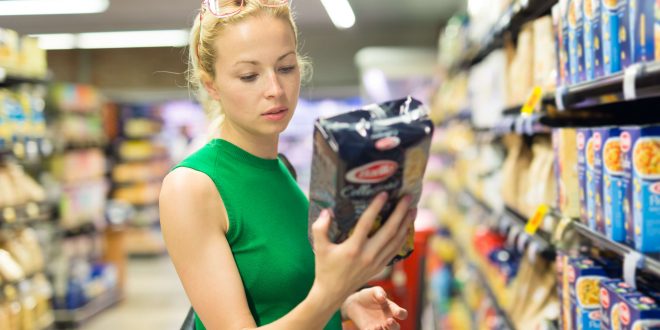Sustainable packaging is and will continue to be a pressing issue in today’s society. There are concerns regarding the packaging industry’s processes — using fossil fuel resources is unsustainable and more companies are looking into viable alternatives.
Without proper packaging, it would be difficult to provide consumers with the items they need to survive. For example, the pharmaceutical, food and beverage and manufacturing industries all rely on packaging to ship their product worldwide. Whether it’s purchased from a shelf or delivered straight to customers’ doors, packaging surrounds us everywhere we go.
Let’s explore some more details about the packaging industry and the importance of finding sustainable packaging solutions.
Current Food and Beverage Packaging Industry
Because there are concerns about the environment, more light is being shed on the current shortcomings of the food and beverage packaging industry. Relying on plastic packaging, regardless of the products being packaged, is simply not a feasible option for us anymore.
As more research regarding climate change emerges, more efforts must be made to transition from plastics to more sustainable, reusable materials. Plastic packaging often gets thrown away and takes up to 500 years to decompose.
While some plastics get recycled or combusted to provide electricity or heat, the majority of plastic packaging will end up in landfills. It’s negatively impacting our environment — plastics emit greenhouse gas emissions, which damage our atmosphere.
Some big-name brands like Pepsi and Coca-Cola are pledging to support sustainability efforts by moving to 100% recycled packaging by 2025. It’s also important for small to medium-sized businesses to consider the implications of using plastic packaging for their products.
Let’s explore some of the viable alternatives to plastic that large corporations and small businesses can use to move toward a more sustainable world.
Exploring Sustainable Alternatives
One of the best ways to achieve sustainable packaging is to follow the principles of right-sized packaging. Rather than ship or sell items that come in large plastic containers that eventually get tossed away, companies can use smaller amounts of plastic to lessen their impact.
Some possible alternatives to plastic are glass, wood, paper and cardboard. When food manufacturers take the time to invest in these types of packaging, they essentially lessen their carbon footprint. They show customers how committed they are to sustainability.
Although it’s hard to imagine a life without plastic, large corporations have the power to fix these industrial issues. Aside from Pepsi and Coca-Cola, companies like Wegmans and Walmart have also made commitments to transitioning to sustainable materials.
It should be noted that food supply production accounts for 30% of total greenhouse gas emissions. Because so many foods are now filled with processed ingredients and packaged in plastic, it’s no wonder that our ecological footprint is growing in size.
So, what else are companies doing to support sustainable packaging practices? Let’s find out below:
- More companies creating action plans for replacing plastic packaging
- Increase the number of end markets for recycled plastics
- Utilizing paper-based packaging solutions
- Materials like polymers and resins are used for packaging production
As more of the general public become aware of climate change issues and the overall declining health of the environment, it’ll be vital for food packaging companies to consider the implications of relying on plastics. Recycling is no longer enough to minimize our carbon footprint. Switching to paper-based or cardboard packaging will help, but more action needs to be taken to address this shortcoming.
The Need for Sustainable Packaging
Now that more organizations within the food and beverage industry are using paper packaging, it’s likely that we’ll see more companies follow suit. It’s in everyone’s best interest to make the transition to more environmentally friendly packaging.



